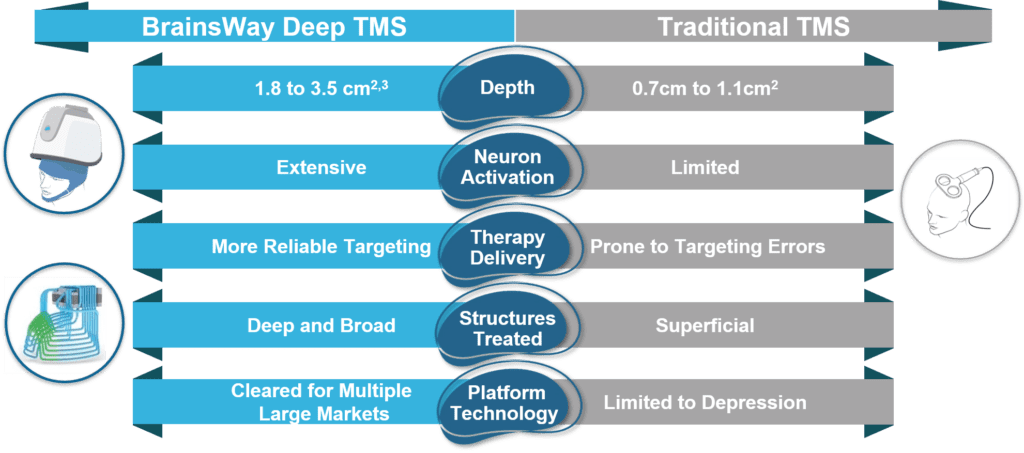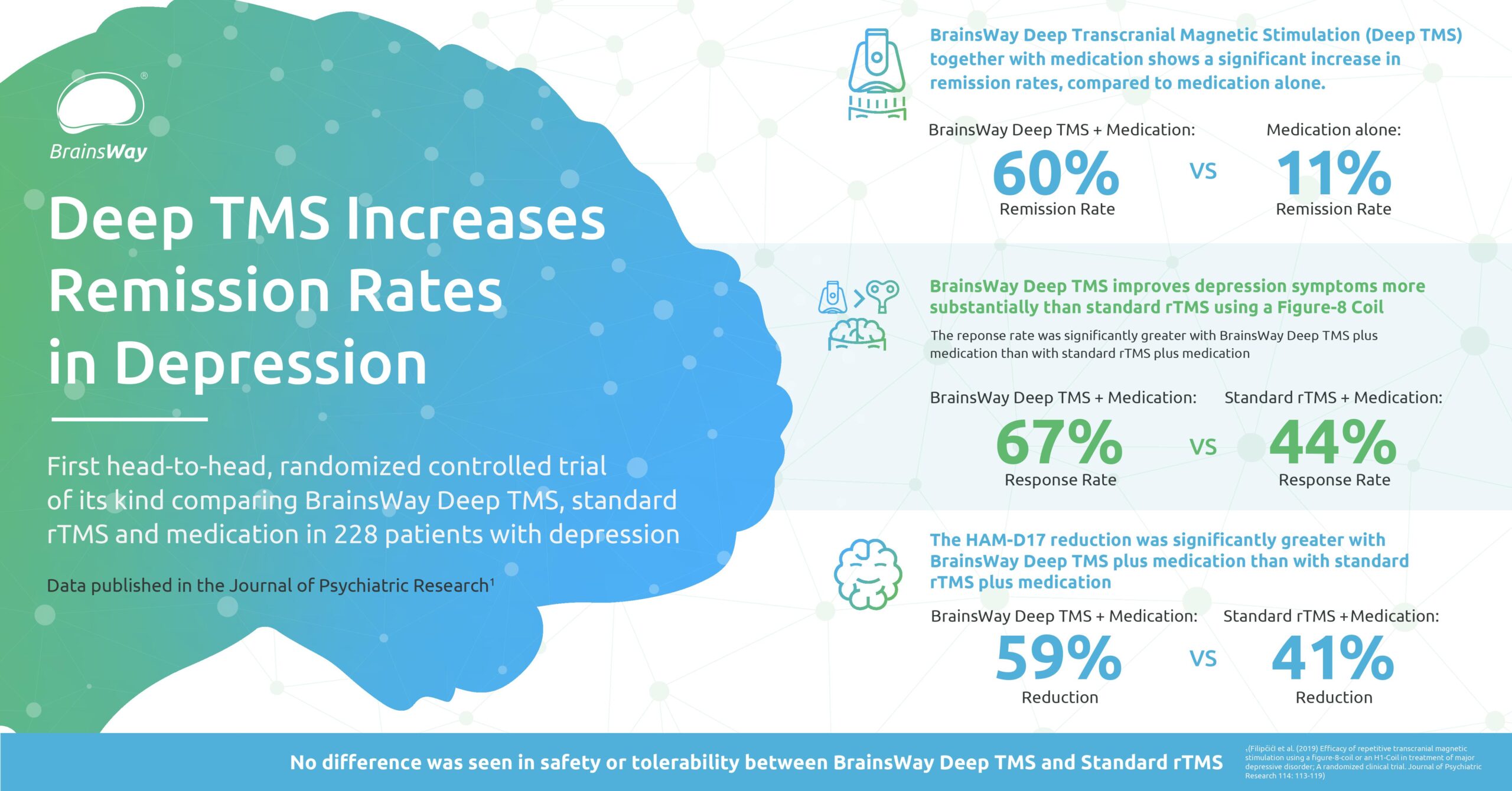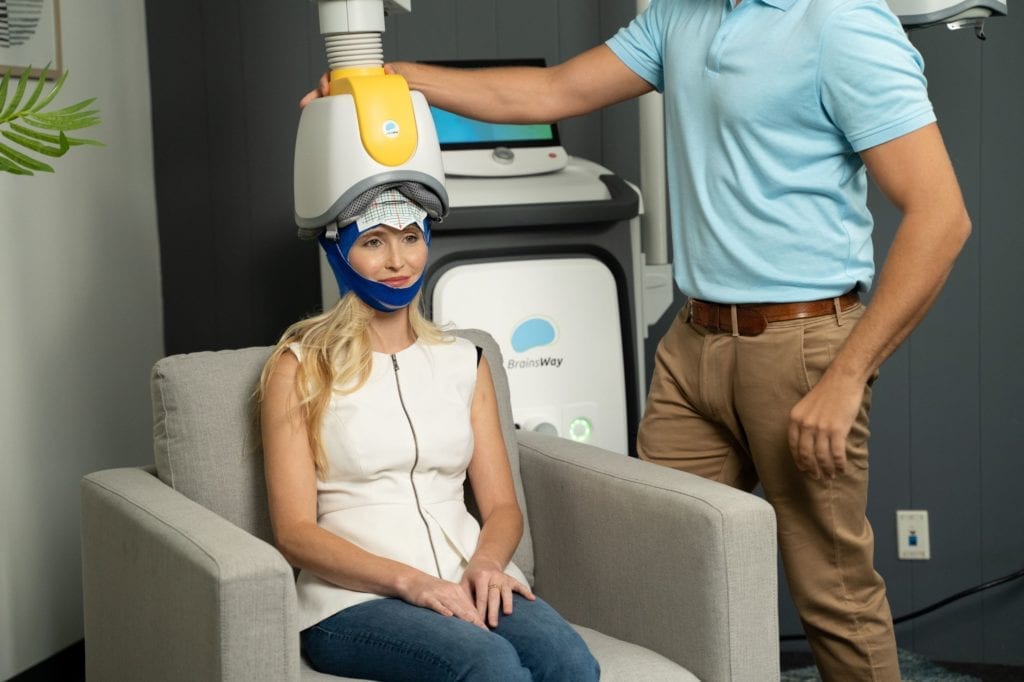Deep TMS
The H-Coil is integrated into BrainsWay’s cushioned helmet, which is flexibly designed to allow for steady, consistent contact with the patient’s scalp throughout the course of treatment, rendering contact sensing software unnecessary. Unlike other traditional TMS systems, the H-Coil is secured to the patients head, reducing the potential for movement of the coil during TMS therapy– essential to ensure reliable clinical outcomes.
Differences Between Deep TMS and Standard rTMS
Standard rTMS and Deep TMS differ in two important ways – the scope of influence and treatment effectiveness.
Scope of Influence – Stimulation and Targeting
Additionally, since magnetic stimulation caused by standard rTMS is more focal, its pulses are directed at a specific point in the brain, as opposed to the broader stimulation of Deep TMS. Because clinical efficacy relies on activating the correct brain structures, standard rTMS often suffers from targeting issues, resulting in reduced efficacy. While this can be mitigated by pairing standard rTMS with complex and costly neuronavigation equipment, Deep TMS does not require any such equipment.
According to recent studies, Deep TMS’s ability to safely and directly stimulate both deeper and wider ranges of the brain may be crucial in successfully treating mental health conditions, such as MDD. This is due to the fact that several structures are at times involved in the symptoms caused by these conditions, and since the exact location of these structures can greatly vary between individuals.
Treatment Effectiveness
Due to the two treatments’ use of different equipment, as well as their reliance on different depths and widths of direct stimulation, standard and Deep TMS have been shown to cause different levels of effectiveness in treating a variety of patients and symptoms. Specifically, a 2019 study published in the Journal of Psychiatric Research showed that patients with moderate-to-severe baseline depression achieved significantly higher response rates when treated with Deep TMS and medication, as opposed to standard rTMS and medication, or medication alone.

Deep TMS increases remission rates in depression

Superior patient comfort
With a traditional TMS system, the clinic is restricted to using a specific chair. The patient’s head is immobilized. Any movement, even a 1mm shift, could result in missing the target.
BrainsWay’s H-Coils are integrated into a cushioned, cooled helmet, allowing the patient to retain mobility during the treatment without compromising treatment accuracy. Clinics can select any chair they deem comfortable and in keeping with the clinic’s aesthetic. The flexibility also allows for patients with mobility issues, such as those in wheelchairs.

